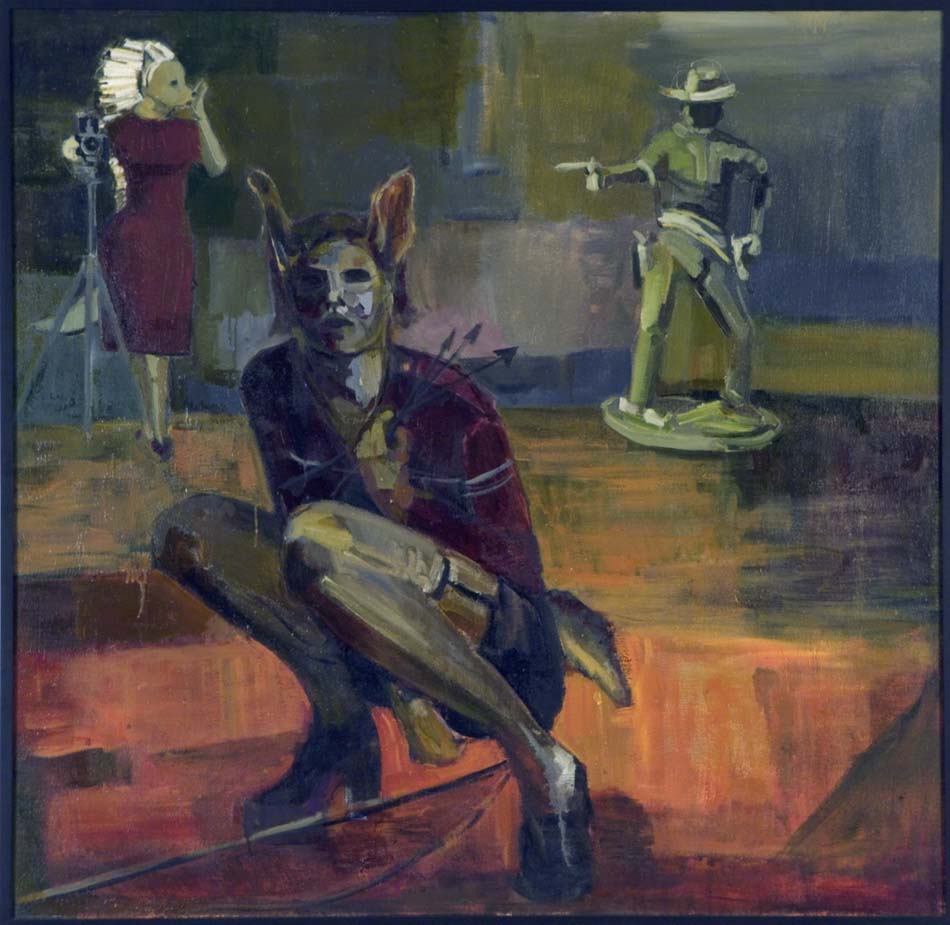
Nanabozho and Coyote’s War Party, 2000
Oil on canvas, 511/2 x 50 in.
ABOUT THE ART
In this painting, Julie Buffalohead paints herself as Nanabozho, an Ojibwe hero figure who is the son of a spirit father and mortal mother. According to Native American legend, Nanabozho can transform himself into any animal or object in nature. Here Nanabozho is seen as a partially transformed woman with the ears and tail of a coyote, a notorious trickster in many Native American stories. In the background, a second coyote-woman shoots a camera, facing off with a plastic, gun-toting cowboy figurine.
ABOUT THE ARTIST
Raised in Minnesota, Julie Buffalohead is of Ponca heritage. She believes that art is rooted first in oneself and second in the culture in which one lives. Buffalohead, who brings to her art a unique perspective shaped by her cultural experiences, wants to be recognized for her individual talent, inventiveness, and artistic accomplishments. She aspires to be a competitive force in the contemporary art world. Commenting on this ambition, she asks, “Can a person of Indian ancestry be accepted as an individual with a creative path of his or her own to follow?”
Vocabulary
Ojibwe – a Native American nation with bands in Minnesota and throughout the northern plains of the United States and Canada.
Ponca – a Native American nation with hands based in Nebraska. The Ponca were forcibly relocated to Oklahoma in 1865, a trek that killed many. Ponca elders fought to return to their homelands. The U.S. courts ruled in 1879 that the U.S. government could not force the Ponca out of Nebraska. The Ponca faced other threats by the government, losing their legal recognition as a sovereign tribal group in 1962. In 1990 the government passed the Ponca Restoration Act, returning legal tribal status and reservation lands to the Ponca.